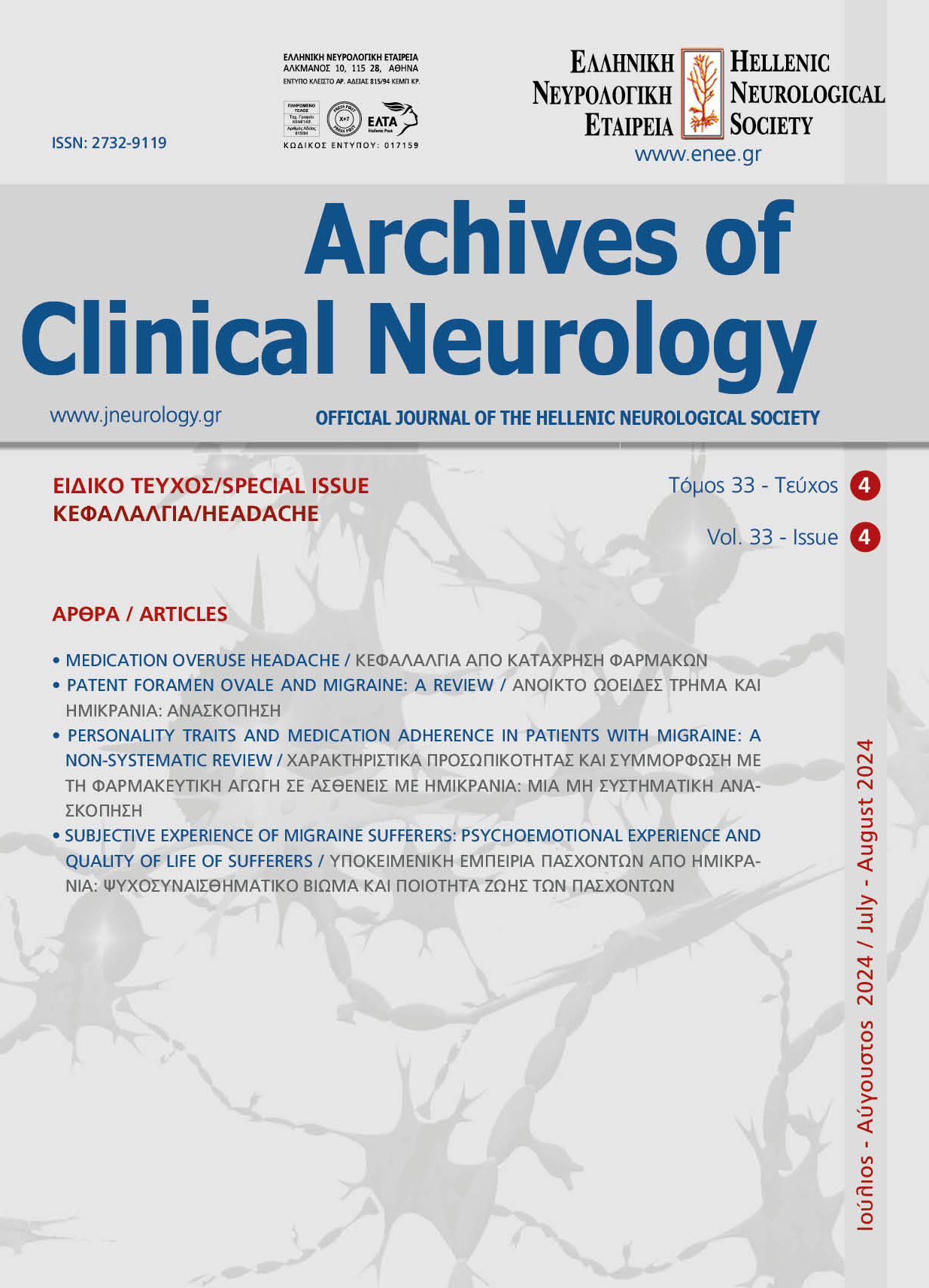MEDICATION OVERUSE HEADACHE
Keywords:
headache, migraine, medication overuse, analgesics, withdrawalAbstract
Medication overuse headache (MOH) is a secondary headache type caused by the overuse of acute
headache medications, occurring only on a pre-existing headache. The current definition has removed
the two main causative factors included in previous classifications: a substantial increase in frequency
and/or intensity of pain, and the reversal of the deteriorated headache after medication withdrawal. This
change makes diagnosing MOH at the individual level challenging, and the concept remains a matter
of debate. However, there is compelling evidence for the harmful effects of medication overuse in both
human and animal studies. A susceptible brain is a necessary prerequisite for medications to exert their
deleterious effects. Genetic polymorphisms, neurophysiologic and imaging alterations, comorbidities,
environmental or lifestyle factors, and even demographic and socioeconomic factors may affect the brain’s
susceptibility in headache sufferers. Some of these factors might result from MOH after its establishment.
The management of MOH is multidimensional. The first important step is prevention. Following diagnosis,
management begins with educational advice and extends to outpatient or inpatient withdrawal of the
overused drugs, whether abrupt or gradual. This process may include the use of adjunctive pharmacotherapy
for withdrawal symptoms, the addition of preventative treatment, and, if needed, non-pharmacological
interventions. All these topics are discussed in the current review, in line with the recent guidelines of the
European Academy of Neurology.


